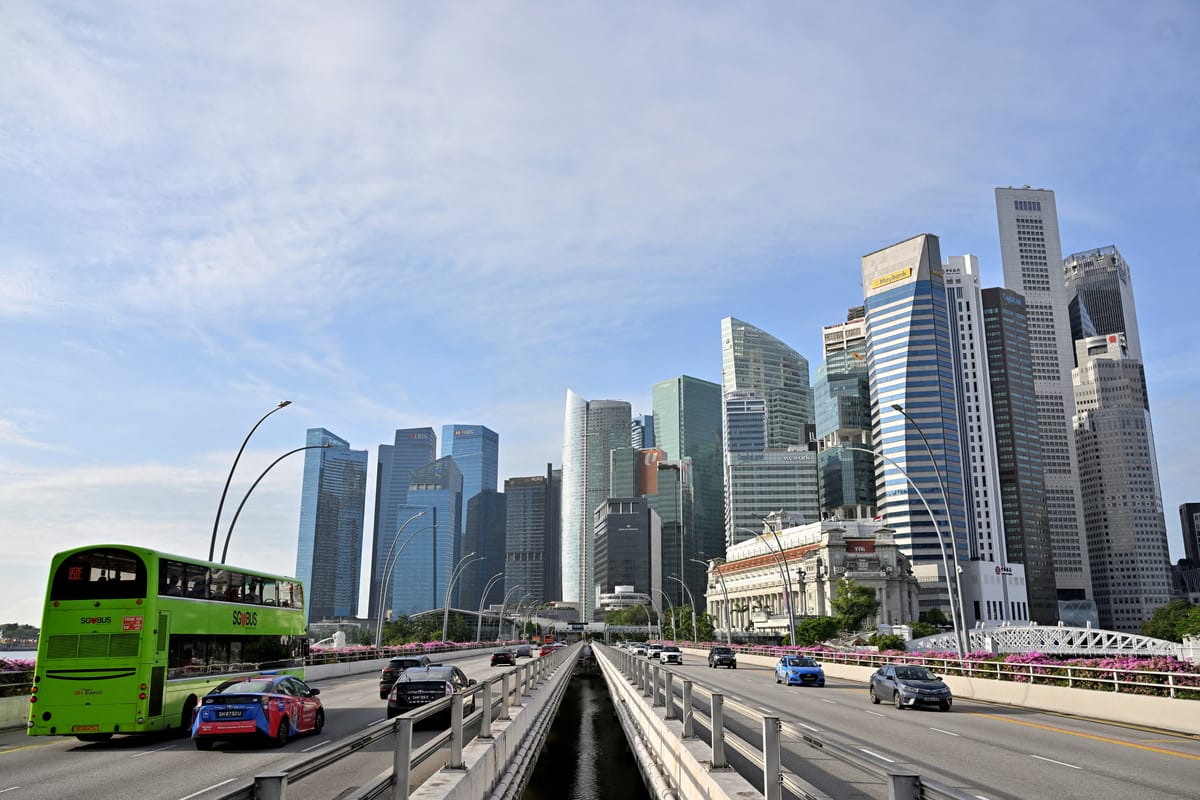Singapore’s sky-high car prices put a spotlight on the country’s widening wealth gap
Due to the high cost of living, inflation and an influx of wealthy foreigners, the wealth gap in Singapore has continued to grow.

A few minutes every morning is all you need.
Stay up to date on the world's Headlines and Human Stories. It's fun, it's factual, it's fluff-free.
The backstory: Since 1990, the Singapore government has controlled the number of cars on the road. To do this, the city-state created its certificate of entitlement (COE) system. A COE is essentially a permit that lets you own and drive a car in Singapore for 10 years. The cost of a COE is set at auction every two weeks, and it’s climbed higher over the past few years, with prices surpassing S$100,000 (US$75,000) in recent months. In 2018, the government also enforced a zero-growth policy for the vehicle population.
More recently: The number of households that own cars has fallen from 40% in 2013 to one-third in recent years. But the price of COEs has soared, with small cars costing more than double from 2018 to 2023. To put that in context, the median monthly income rose by only 2.4% in 2023, which means that a worker on a median salary of S$5,197 (US$3,875) a month would have to spend three years’ wages to buy a Toyota sedan.
For many Singaporeans, owning a car is not essential as the island state has a great public transport network. But car ownership is still seen as a symbol of wealth, which many strive toward. In May, the Singaporean authorities announced that they would grant 6,000 new COE permits to cool off the market, but this didn’t do much to reduce the prices, leading the prime minister to pledge to extend the quota.
The development: Singapore has become known as a wealth haven, boosted in status with more and more mega-rich families and talent coming into the country. Due to the high cost of living from increased rent, inflation and this influx of wealthy foreigners, the wealth gap in Singapore has continued to grow extensively. This is only underscored by recent skyrocketing prices of even mid-range cars. For example, Singaporean resident Sabrina Vu went to a Toyota dealership to purchase a new car and found that they were asking for S$260,000 (US$193,870) for a hybrid and the COE, she said to Bloomberg. Since there are only so many COEs to go around and more rich people are able to pay top prices, owning a car is becoming an unreachable luxury for many living there.
Key comments:
“COE prices, like many other things actually, emphasize the wealth gap in Singapore,” said Victor Kwan, a senior lecturer at Singapore University of Social Sciences, to Bloomberg. “If it continues to go up, there will be growing frustration.”
“I know people who would eat less, eat cheaper, not go out as often to save up for a branded bag or a nice car, because it is almost like a status thing,” said Sabrina Vu, a prospective Toyota buyer, to Bloomberg.
“It’s not a luxury, it’s a necessity,” said Abu Bakar, who plans to drive his grandchildren around after retiring from his job as a manager, to Bloomberg. “People buy cars because it’s necessary to bring your family around, your own family comes first.”




Comments ()